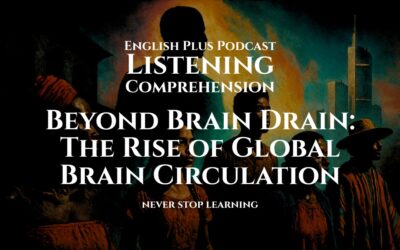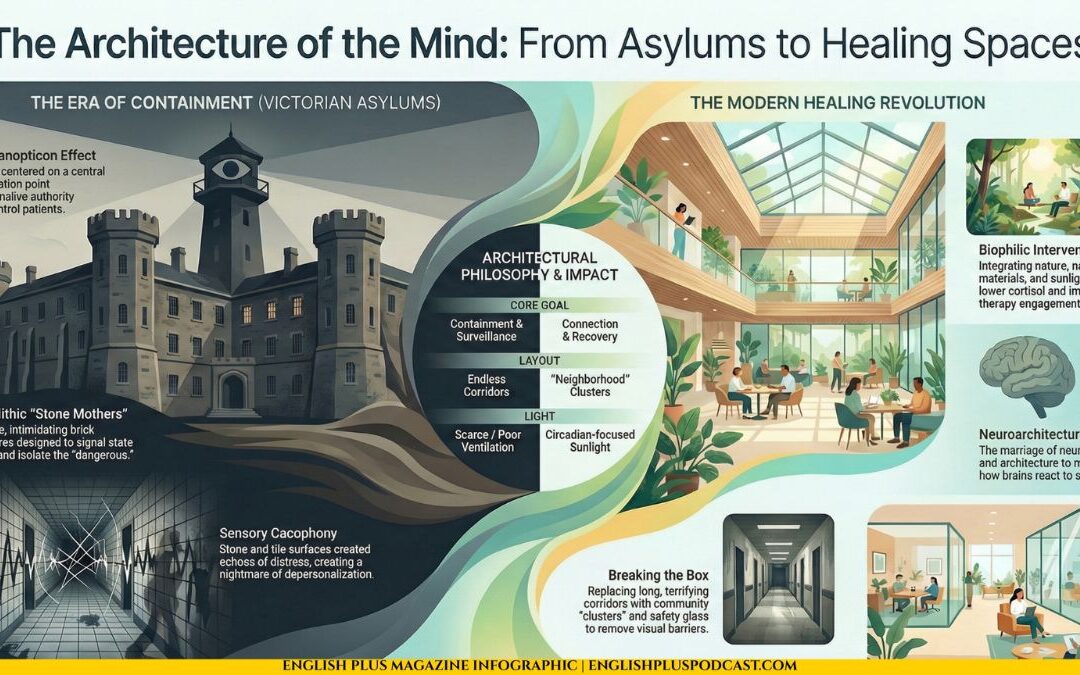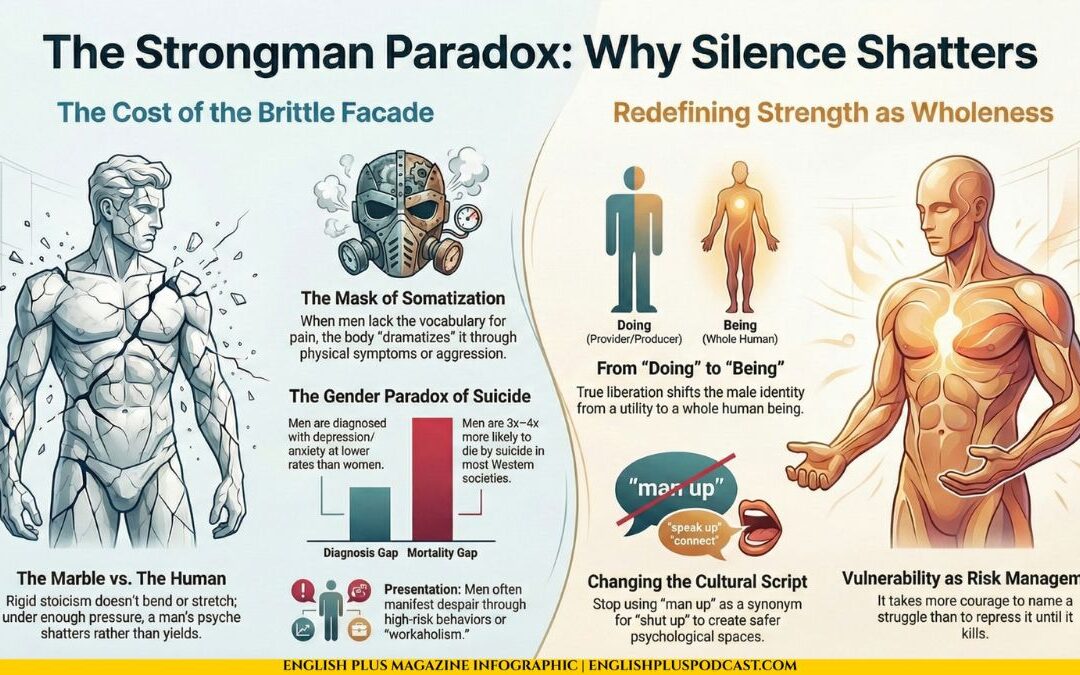Listen | The History of the Internet
Listening Comprehension Quiz
Transcript: Check the transcript only after you listen and finish the quiz
The History of the Internet
Hello, everyone! Today, we’re diving into a topic that affects nearly every aspect of our lives: the history of the Internet. As you sit here with your smartphones and laptops, it’s hard to imagine a time without the Internet, isn’t it? But the Internet we know today is the result of decades of innovation, collaboration, and yes, a bit of serendipity.
Let’s rewind to the late 1950s, a time when computers were the size of entire rooms, and the world was gripped by the tensions of the Cold War. The United States, eager to maintain its technological edge over the Soviet Union, established the Advanced Research Projects Agency, or ARPA. Their goal was to create advanced communication systems that could withstand a nuclear attack. You see, the seeds of the Internet were planted not by tech companies looking to sell gadgets, but by military strategists preparing for the worst-case scenario.
Fast forward to the 1960s, and we meet a visionary computer scientist named J.C.R. Licklider. He dreamt of a “Galactic Network” that would allow people to access data and programs from anywhere in the world. Sounds familiar, right? Licklider’s ideas were revolutionary at the time, and they inspired a group of researchers who began developing a network that could connect computers across great distances.
This led to the creation of ARPANET, the predecessor of the Internet. In 1969, ARPANET transmitted its first message from a computer at UCLA to another at Stanford. The message was meant to be “LOGIN,” but only the first two letters, “LO,” made it through before the system crashed. Despite the rocky start, this was a monumental moment. Picture it as the Internet’s first baby steps.
As we move into the 1970s, more and more universities and institutions connected to ARPANET. It was like an exclusive club of scientists and researchers sharing information. However, different networks began to emerge, each with its own language. Imagine trying to chat with someone who only speaks Martian when you’re speaking Venusian. That’s how it was—networks couldn’t communicate with each other efficiently.
Enter Vint Cerf and Bob Kahn, two pioneers who, in 1974, developed TCP/IP, a set of rules that allowed different networks to talk to each other. This was the Rosetta Stone of networking, enabling the Internet to grow beyond a few select institutions.
Now, let’s step into the 1980s. Personal computers were becoming more common, but the Internet was still a mystery to most people. It was like a secret garden, accessible only to those with the right keys. However, a significant shift was on the horizon. In 1991, Tim Berners-Lee, a British scientist working at CERN, introduced the World Wide Web. Suddenly, the Internet wasn’t just for scientists and techies; it was for everyone.
The World Wide Web made it easy to navigate the Internet through hyperlinks, like walking through a library where every book is connected by invisible threads. The introduction of web browsers like Mosaic and, later, Netscape, opened the floodgates. Suddenly, everyone wanted to get online, and businesses scrambled to establish their presence in this new digital frontier.
Throughout the 1990s and into the 2000s, the Internet exploded in popularity. We saw the rise of email, search engines, social media, and e-commerce. Companies like Google, Amazon, and Facebook transformed from startups in garages to tech giants shaping global culture. It was a period of rapid innovation, reminiscent of a digital gold rush.
Today, the Internet is woven into the fabric of our daily lives. It’s changed how we work, communicate, and even think. With the advent of smartphones and the rise of mobile Internet, information is literally at our fingertips. We can order food, stream movies, learn new skills, and connect with people on the other side of the world—all in an instant.
So, as you sit here today, remember that the Internet is more than just a collection of websites and apps. It’s a testament to human ingenuity, collaboration, and the relentless pursuit of progress. From the military’s strategic needs to the visions of scientists, the Internet’s history is a story of transformation and innovation. And who knows what the next chapter will bring? Perhaps one of you will be the next Tim Berners-Lee, writing the future of the digital world.
Thank you for joining me on this journey through time. I hope you’ve gained a deeper appreciation for this remarkable invention that connects us all.
Expand Your Vocabulary
In this section, we’ll explore some key words and expressions from the article on the history of the Internet. Understanding these terms will not only enhance your comprehension of the topic but also help you incorporate them into everyday conversations.
- Innovation
Meaning: The introduction of something new, especially a new idea, method, or device.
Contextual Use: In the article, innovation refers to the new technologies and ideas that led to the development of the Internet.
Everyday Use: You might use innovation to describe a new app that changes how we interact with technology or a creative solution to a problem at work. - Collaboration
Meaning: The act of working together with others to achieve a common goal.
Contextual Use: Collaboration was crucial in the development of the Internet, with scientists and researchers from different fields contributing to its growth.
Everyday Use: At school or work, collaboration is essential for completing group projects or coming up with creative solutions. - Resilient
Meaning: Able to withstand or recover quickly from difficult conditions.
Contextual Use: The Internet was designed to be resilient, able to continue functioning even under challenging circumstances like a nuclear attack.
Everyday Use: You might describe a person as resilient if they quickly recover from setbacks or adapt well to changes. - Interoperability
Meaning: The ability of different systems or components to work together effectively.
Contextual Use: TCP/IP protocols enabled the interoperability of different networks, allowing them to communicate with each other.
Everyday Use: You might refer to the interoperability of different devices, like when your smartphone seamlessly connects to your car’s Bluetooth system. - Pioneer
Meaning: A person who is among the first to explore or settle a new area or develop a new idea.
Contextual Use: Vint Cerf and Bob Kahn are pioneers of the Internet, having developed the crucial TCP/IP protocols.
Everyday Use: Pioneers can be anyone leading the way in new areas, such as an entrepreneur starting a new type of business or an artist exploring a new form of expression. - Serendipity
Meaning: The occurrence of events by chance in a happy or beneficial way.
Contextual Use: The development of the Internet involved a bit of serendipity, with unexpected discoveries leading to significant advancements.
Everyday Use: You might experience serendipity when you meet an old friend by chance or discover a new hobby that you love. - Proliferation
Meaning: The rapid increase in numbers or spread of something.
Contextual Use: The proliferation of personal computers in the 1980s made the Internet more accessible to the general public.
Everyday Use: You might talk about the proliferation of smartphones in recent years or the spread of new trends on social media. - Revolutionary
Meaning: Involving or causing a complete or dramatic change.
Contextual Use: J.C.R. Licklider’s ideas were revolutionary for their time, envisioning a global network long before it became a reality.
Everyday Use: A revolutionary product or idea might completely change how we live, like the introduction of the electric car. - Digital Frontier
Meaning: A term used to describe the new opportunities and challenges presented by digital technology and the Internet.
Contextual Use: Businesses scrambled to establish their presence in the digital frontier of the Internet.
Everyday Use: Exploring the digital frontier can involve learning about new technologies, like virtual reality or artificial intelligence. - Testament
Meaning: Something that serves as evidence or proof of a particular fact or quality.
Contextual Use: The Internet is a testament to human ingenuity and progress, showcasing our ability to innovate and collaborate.
Everyday Use: You might call someone’s success a testament to their hard work and dedication.
Vocabulary Quiz
Let’s Talk
Now that you’ve delved into the history of the Internet and expanded your vocabulary, let’s reflect on some thought-provoking questions. These questions are designed to spark discussion and deepen your understanding of the topic. Feel free to share your thoughts in the comments or discuss them with friends and family.
- How has the Internet changed the way we communicate compared to before its existence? Are there aspects of pre-Internet communication that you think should be preserved?
- What do you think are the biggest challenges facing the Internet today, and how might they be addressed?
- In what ways has the Internet positively and negatively impacted your daily life? Can you imagine living without it?
- How might the Internet evolve in the next decade, and what innovations do you hope to see?
- Consider the role of privacy and security on the Internet. Do you believe we are doing enough to protect personal information online? Why or why not?
- Reflect on the concept of the digital divide. What can be done to ensure that everyone has equal access to the Internet and its resources?
- How does the Internet influence cultural exchange and understanding between different countries and communities? Can it do more to promote global harmony?
- With the rapid pace of technological advancements, how can individuals and societies ensure they are keeping up with changes without losing touch with traditional values?
These questions invite you to think critically about the Internet’s role in our world and your life. Engaging with these topics can help you appreciate the complexities of our digital age and consider your place within it. Share your answers in the comments below if you like or discuss these questions with your friends, family or anyone who’s interested in the topic.










0 Comments